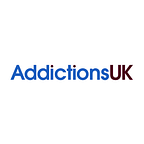Talking to Someone in Recovery Need Not be Difficult
Having a loved one in recovery who lives with addiction can raise several questions.
It is normal to be curious and to want to know about their journey, to better understand them. However, approaching them is not always easy. You may worry that it appears as though you are judging them or putting them under too much pressure. This raises fears of appearing too inquisitive, or your loved one acting defensively and building resentment towards you.
Here are 5 handy tips to help you along the way
1. Listen More, Talk Less
It is important to note that your loved one might be attending groups, therapy sessions or speaking to professionals who are helping them focus on the diseased part of their addiction. There may be a lot of new information and emotional change to the process for the individual. Whilst you may be focussed on the immediate solution, theirs’ is a journey of processing the past and self-discovery. Communicating a solution is not easily explained at first. Instead of offering immediate opinions, it is better to simply listen. By offering your loved one the opportunity to talk, you invite them to explain as much as they feel comfortable with and without immediate opinion, they feel less judged and safe.
2. Leave the Past in the Past
Loving someone during active addiction can be difficult. The lies, the hurt from broken promises and the lack of trust can create trauma and leave much emotional pain. You may have a lot of feelings about what you observed or dealt with. However, commenting on this or how it affected you can easily trigger an outburst, especially if your loved one is in early recovery and feels guilty and shameful about these recent events.
Instead, it may be more constructive to find a more independently objective person to help guide you through these emotions. An organisation such as AddictionsUK which specialises in family support, or mutual aid support groups such as Al-Anon, Families Anonymous or Nar-Anon are best suited to help you take care of your own needs. Allowing you to heal from the past and to live in the moment with your loved one.
By staying focussed on a message of recovery you demonstrate support through actions as well as words.
3. Choose Your Words Wisely
Often people want to relate to the pain their loved one has gone through on their journey to recovery. This sparks a desire to disclose intimated stories about the past. If all you have even known is the individual in sobriety trying to remain on the present moment will serve you much better. If they do want to disclose their past, resist the urge to share stories of your own history with drugs or alcohol and let them share their journey comfortably, if they so choose.
The question of abstinence might also bring up some questions. If it was illicit substances your loved one had an issue with you may wonder, why their recovery includes abstaining from alcohol. One can be tempted to ask, “Why stop alcohol? Alcohol was never your issue, was it?” or “So are you never going to drink again?”
For an individual in recovery, these innocent questions can appear judgemental or triggering. It is not unusual for the addict to ask these questions regularly of themselves and normalising alcohol or down-playing can be dangerous for those in recovery.
4. Be A Message of Hope and Affirmation
People in early recovery often fear what their lives will become without substances, some will fear that they shall appear boring or unable to socialise. Take this opportunity to highlight the endless possibilities and bright future in front of them, regardless of their stage in life. A life free from substances can only be better than the pain of addiction. Affirm their goals and tell them how excited you are to see them fulfil their potential.
Maintain a positive attitude and tone. Chances are your loved one is all too aware of the hurt they have caused to you and others. So, show positivity — that their actions today, count more than the words of yesterday and affirm to them that recovery offers more, in the way of healing.
Learn More About Recovery
Utilise online resources to learn more about addiction and recovery. Whilst having your loved one back is great, seeing them having to invest so much into recovery may leave you with many unanswered questions, find out what your loved one has to do in order to maintain their recovery. This will help you understand and be supportive of their commitments.
Mutual aid groups Al-Anon, Nar-Anon and Families Anonymous (FA) all have online website and meetings in most cities. These 12 step support groups follow the same steps and traditions as your loved ones are following in Alcoholics Anonymous (AA) or Narcotics Anonymous (NA). They exist to support the family and carers of people who are addicted to substances. They are free to attend, and leaflets are available via their websites. Alternatively, if this feels like something you do not want to do, organisations like Addictions UK are on hand to offer you confidential support at an affordable price.
If you are interested in a home detox or home counselling package please contact us on 0800 1404044 or complete the online form to contact us.
